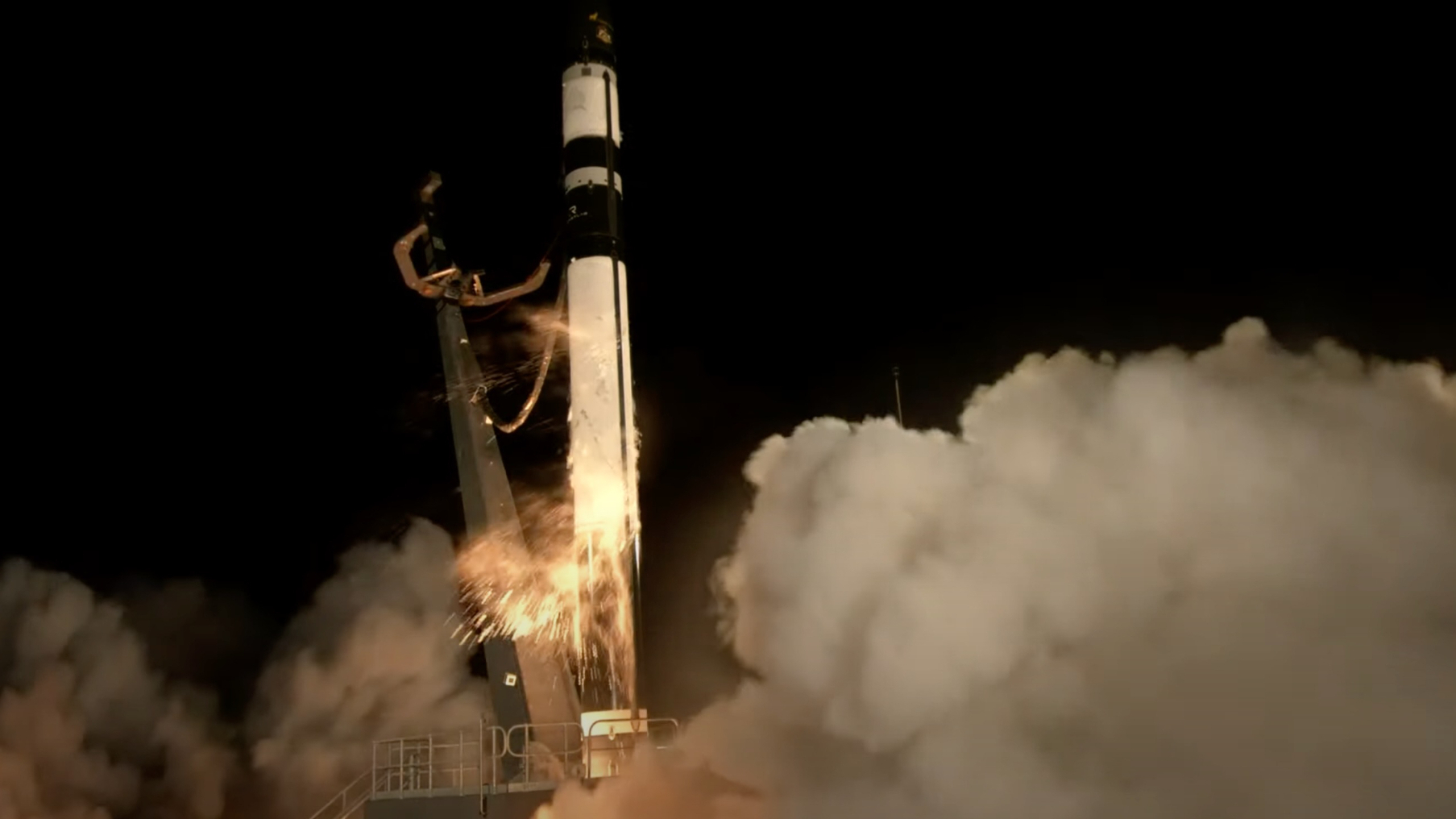
Rocket Lab will bounce back quickly from last month's launch failure, if all goes according to plan.
The California-based company is still investigating what caused its Electron rocket to fail on Sept. 19, resulting in the loss of a commercial Earth-observing satellite. But that doesn't mean Electron will be grounded for long.
"The full review is expected to be completed in the coming weeks, with Rocket Lab currently anticipating a return to flight later this quarter with corrective measures in place," Rocket Lab wrote in an update on Wednesday (Oct. 25.)
Related: Rocket Lab launches booster with preflown engine for 1st time (video)
The anomaly occurred about 2.5 minutes into the Sept. 19 mission, just after Electron's second-stage engine kicked on. The rocket's first stage performed normally during the flight, Rocket Lab representatives said.
The U.S. Federal Aviation Administration (FAA), which issues launch licenses for American rockets, is overseeing the mishap investigation, and the National Transportation Safety Board is serving as an official observer, according to Rocket Lab.
Though the investigation is ongoing, the FAA has already given Rocket Lab, and Electron, a vote of confidence.
Get the Space.com Newsletter
Breaking space news, the latest updates on rocket launches, skywatching events and more!
The agency "has now confirmed that Rocket Lab's launch license remains active, which is the first step to enable launches to resume," the company wrote in Wednesday's update.
Before the Sept. 19 mission, which Rocket Lab called "We Will Never Desert You," Electron had aced 20 consecutive missions. Overall, the 59-foot-tall (18 meters) rocket has 37 successful flights under its belt, which have delivered a total of 171 satellites to orbit, according to the company.
Before last month, the recent Electron failure occurred in May 2021.
"We Will Never Desert You" aimed to loft a synthetic aperture radar satellite for the company Capella Space, which is based in San Francisco. It was Rocket Lab's third launch for Capella in 2023; the other two missions were successful.
Join our Space Forums to keep talking space on the latest missions, night sky and more! And if you have a news tip, correction or comment, let us know at: community@space.com.

Michael Wall is a Senior Space Writer with Space.com and joined the team in 2010. He primarily covers exoplanets, spaceflight and military space, but has been known to dabble in the space art beat. His book about the search for alien life, "Out There," was published on Nov. 13, 2018. Before becoming a science writer, Michael worked as a herpetologist and wildlife biologist. He has a Ph.D. in evolutionary biology from the University of Sydney, Australia, a bachelor's degree from the University of Arizona, and a graduate certificate in science writing from the University of California, Santa Cruz. To find out what his latest project is, you can follow Michael on Twitter.









